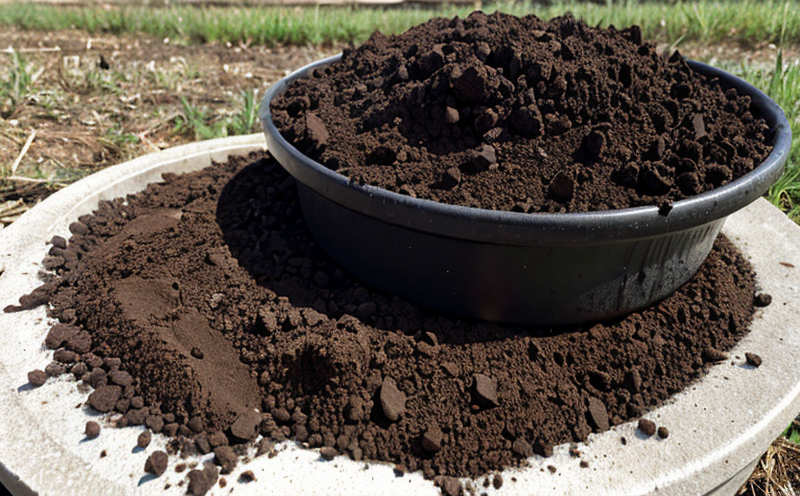EN 16201 Phenols in Residual Byproducts
The European standard EN 16201:2018 provides a comprehensive methodology for the determination of phenols in residual byproducts, including landfill leachate and solid wastes. This standard is particularly critical for waste management facilities that are subject to stringent environmental regulations.
The primary focus of this service involves the quantification of phenolic compounds present within residual byproduct streams. Phenols can be derived from various sources such as industrial processes, household products, or leaching events during landfilling. These compounds pose significant risks if not managed appropriately, as they are known to have toxic effects on aquatic life and soil ecosystems.
The standard outlines a series of steps aimed at ensuring accurate measurement: sample collection, preservation, transportation, preparation, and analysis using validated techniques such as High-Performance Liquid Chromatography (HPLC). The method ensures that all components of the residual byproduct are accounted for during testing. It is important to note that this service goes beyond mere compliance; it provides valuable insights into the environmental impact of waste management practices.
The scope of EN 16201 includes both liquid and solid matrices, offering a holistic approach to monitoring phenol levels in complex waste streams. This ensures that stakeholders have a comprehensive understanding of their operations' environmental footprint. Compliance with this standard is not only beneficial for regulatory adherence but also enhances the reputation of companies involved in sustainable waste management practices.
Our laboratory adheres strictly to EN 16201 guidelines, ensuring precision and reliability in every test conducted. By leveraging advanced analytical techniques, we offer accurate quantification of phenols, which is essential for informed decision-making regarding waste treatment strategies.
In addition to compliance reporting, our service provides detailed analysis that can be used to optimize waste management processes, reduce environmental risks, and contribute positively towards sustainability goals. This level of detail ensures that clients have actionable data they can use to improve their operations continuously.
- Compliance Assurance: Ensures strict adherence to international standards for phenol measurement.
- Data Accuracy: Utilizes state-of-the-art analytical methods to provide precise results.
- Environmental Impact Assessment: Offers insights into the environmental impact of waste streams.
- Decision Support: Provides actionable data that supports strategic planning and operational improvements.
The importance of phenol quantification cannot be overstated in the context of sustainable waste management. By adhering to standards like EN 16201, stakeholders demonstrate their commitment to environmental responsibility while ensuring regulatory compliance.
Benefits
Implementing EN 16201 Phenols in Residual Byproducts testing brings numerous benefits across various sectors. For waste management facilities, this service ensures strict adherence to environmental regulations and enhances operational efficiency.
- Regulatory Compliance: Ensures that all operations comply with international standards for phenol measurement.
- Data Quality: Provides reliable data on phenol levels within residual byproducts.
- Environmental Stewardship: Helps in minimizing the environmental impact of waste management practices.
- Sustainable Operations: Enables continuous improvement and optimization of operational processes.
The ability to accurately measure phenols is crucial for industries dealing with hazardous waste or those involved in landfill operations. It allows companies to make informed decisions about their waste treatment methods, ultimately leading to more sustainable practices.
For procurement departments, this service can help identify suppliers who adhere to strict environmental standards, ensuring that products used contribute positively towards sustainability goals. This not only enhances the reputation of a company but also supports broader societal efforts toward reducing carbon footprints and protecting natural resources.
Environmental and Sustainability Contributions
The implementation of EN 16201 Phenols in Residual Byproducts testing plays an integral role in promoting environmental sustainability. By accurately measuring phenol levels within residual byproduct streams, this service helps to minimize the risk of contamination from hazardous materials.
Phenols are known to have adverse effects on ecosystems and human health if not properly managed. Through precise quantification, our laboratory ensures that waste management facilities can take proactive measures to mitigate these risks effectively. This includes implementing advanced treatment technologies and adopting best practices for waste disposal.
The data generated from this service can also be used by companies to inform their broader sustainability strategies. For instance, it allows them to track progress towards reducing hazardous substances in their supply chains or within their own operations. Such information is invaluable when seeking certification under recognized environmental management systems (EMS).
Furthermore, compliance with EN 16201 not only enhances a company's reputation but also contributes positively towards meeting global climate change mitigation targets. By ensuring proper handling and disposal of phenolic compounds, businesses can play their part in protecting the environment for future generations.
Competitive Advantage and Market Impact
- Informed Decision-Making: Provides detailed insights into waste composition that enable strategic planning.
- Enhanced Reputation: Demonstrates commitment to environmental responsibility, boosting brand image.
- Regulatory Compliance: Ensures adherence to international standards, avoiding potential fines and penalties.
- Sustainable Operations: Supports continuous improvement in operational processes, enhancing efficiency.
The ability to accurately measure phenols within residual byproducts offers significant competitive advantages. Companies that adopt this service early can position themselves as leaders in sustainable waste management practices. This not only enhances their reputation but also opens up new market opportunities for innovative solutions and technologies related to environmental sustainability.
Moreover, compliance with EN 16201 is becoming increasingly important as regulations around hazardous substances become more stringent worldwide. Companies that are ahead of the curve in terms of phenol quantification will find it easier to navigate these changes while maintaining a competitive edge.





